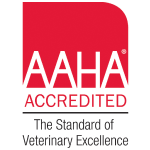Did you know that pet obesity is one of the most common preventable health issues affecting our furry friends today? As pet owners, we want to give our pets the best possible lives, but sometimes that love translates into overfeeding and fewer walks, which can lead to serious health problems. Maintaining a healthy weight is vital for your pet’s well-being, longevity, and quality of life. At South Hyland Pet Hospital in Bloomington, we are committed to helping you keep your pet in optimal health.
What Is Pet Obesity?
Pet obesity occurs when a pet carries excess body fat that negatively impacts their health. A pet is considered overweight if they are 10–20% over their ideal weight, and obese if they are more than 20% over. Obesity can lead to serious health complications, reducing quality of life and lifespan. To check for obesity, pet owners can feel their pet’s ribs and observe their waistline. In healthy pets, ribs should be easy to feel, and a waist should be visible when viewed from above.
Here are some common signs that your pet may be overweight or obese:
- Difficulty Moving: Struggling to jump, climb stairs, or get up can indicate that your pet is carrying too much weight, straining their joints.
- Lethargy and Reduced Activity: Overweight pets are often less active, tiring quickly during walks or playtime due to the extra weight.
- Heavy Breathing or Panting: Excessive panting or difficulty breathing after light exercise may signal that your pet’s weight is affecting their respiratory system.
- Visible Fat Deposits: Fat deposits around the tail, belly, and back are common in obese pets and can be felt when you touch or pet them.
- No Visible Waistline: An overweight pet will lack a defined waist and appear rounder when viewed from above.
- Difficulty Grooming: Overweight cats may struggle to groom themselves, resulting in a dull coat or unkempt fur patches.
If you notice any of these signs in your pet, it’s important to consult our expert veterinarian to discuss their weight and develop a plan to get them back to a healthy condition.
Health Risks Associated with Pet Obesity
Carrying extra weight can significantly impact your pet’s health, leading to a range of preventable diseases. Here are some of the most common health risks associated with pet obesity:
- Diabetes: Obesity raises the risk of diabetes, particularly in cats, by causing insulin resistance and high blood sugar, requiring lifelong management.
- Joint Pain and Arthritis: Excess weight strains joints, increasing the likelihood of arthritis, leading to chronic pain and mobility problems.
- Heart Disease: Obesity makes the heart work harder, increasing the risk of heart disease and congestive heart failure.
- Respiratory Issues: Obesity adds pressure to the lungs, making it harder for pets to breathe and raising the risk of respiratory distress.
- Decreased Life Expectancy: Obese pets often live up to two years less due to conditions like diabetes, heart disease, and joint issues.
- Decreased Mobility and Activity Levels: Obesity reduces mobility and increases lethargy, leading to further weight gain and muscle loss.
- Increased Risk of Cancer: Obesity may elevate the risk of certain cancers due to chronic inflammation caused by excess body fat.
These are just a few of the serious health conditions that can develop due to excess weight. Preventing pet obesity is essential to keeping your furry companion healthy, happy, and active for as long as possible.
Why Keeping Your Pet at a Healthy Weight Matters
Maintaining your pet’s ideal weight is important for their long-term health and happiness. Small habits like extra treats or skipped walks can lead to weight gain over time, which impacts more than just appearance. A healthy weight enhances your pet’s overall health, energy levels, and quality of life.
How a Healthy Weight Reduces the Risk of Disease
Excess body fat is more than just a cosmetic issue—it’s metabolically active and contributes to inflammation throughout the body. This inflammation can exacerbate or lead to the development of many chronic diseases that can significantly reduce your pet’s quality of life.
- Diabetes Prevention: Maintaining a healthy weight reduces the risk of insulin resistance and diabetes, especially in cats.
- Joint Health and Mobility: A healthy weight minimizes strain on joints, helping prevent arthritis and joint pain, especially in large or aging pets.
- Heart and Respiratory Health: Keeping pets at a healthy weight reduces the workload on their heart and lungs, lowering the risk of heart disease and respiratory problems.
- Cancer Risk: Maintaining a healthy weight may lower the risk of certain cancers, such as mammary and bladder cancer.
Improved Mobility and Energy
Keeping your pet at a healthy weight significantly improves their mobility and energy levels, making it easier for them to stay active and enjoy physical activities. Pets at a healthy weight are more playful, have increased stamina, and experience less joint pain, allowing for more comfortable and pain-free movement.
Emotional and Mental Health Benefits
Maintaining a healthy weight improves your pet’s mental and emotional well-being, making them more active, happier, and better able to bond with you through play and cuddles. Regular exercise reduces boredom and stress, helping prevent behavioral issues and promoting a balanced, emotionally fulfilled life.
A healthy pet is a happy pet, and proactive weight management ensures a longer, fulfilling life. For personalized guidance on your pet’s weight, consult the team at South Hyland Pet Hospital for expert advice and tailored care plans.
How to Prevent Pet Obesity
Preventing obesity in pets starts with awareness and good habits. Here are some simple but effective ways to help your pet maintain a healthy weight:
- Portion Control: Measure your pet’s food carefully, follow feeding guidelines, and limit table scraps and treats to prevent overfeeding and excess calorie intake.
- Regular Exercise: Ensure regular physical activity, like daily walks for dogs and interactive play for cats, to help burn calories and maintain a healthy weight.
- Choosing the Right Pet Food: Feed your pet high-quality, nutritionally balanced food tailored to their needs, and consult your veterinarian for the best diet recommendations. You can also explore our online pharmacy for recommended pet foods and weight management products.
If you’re unsure whether your pet is overweight, or if you’re concerned about how much to feed them, talk to your veterinarian. At South Hyland Pet Hospital, we can assess your pet’s body condition and provide personalized guidance, including portion recommendations and a diet plan if necessary.
Seek Expert Advice: Consult Your Veterinarian
If you’re concerned about your pet’s weight, visiting a veterinarian is important for personalized guidance. At South Hyland Pet Hospital, we offer tailored weight management plans based on your pet’s health, age, and lifestyle, ensuring safe, gradual weight loss. Regular monitoring helps track progress and adjust the plan as needed. Working with our expert veterinary team provides expert advice on nutrition, appropriate exercise, and identifying any underlying health issues that may contribute to weight gain.
You can also access weight management products and prescription diets through our convenient online pharmacy. Make an appointment to start your pet’s journey toward a healthier, happier life.
Is Your Pet Packing on the Pounds? | Take Action for Your Pet’s Health
Pet obesity awareness is vital for maintaining your pet’s health. Keeping your pet at a healthy weight ensures they have the best chance at a long, happy life. If you’re concerned about your pet’s weight or need guidance in helping them reach and maintain their ideal weight, contact South Hyland Pet Hospital at (763) 315-4200. We’re here to support you and your pet, ensuring they stay fit, healthy, and full of life.
Frequently Asked Questions About Pet Obesity
- How can I tell if my pet is overweight or obese?
You can check by gently feeling your pet’s ribs. If you cannot easily feel the ribs due to a layer of fat, or if your pet has no noticeable waistline when viewed from above, they may be overweight. A visit to your veterinarian will help you get an accurate body condition score for your pet.
- What are some health risks associated with pet obesity?
Obesity in pets can lead to several serious health issues, including diabetes, joint problems, heart disease, and respiratory issues. Additionally, overweight pets often have a shorter life expectancy and decreased mobility.
- How much should I be feeding my pet?
Portion sizes depend on your pet’s age, breed, activity level, and specific dietary needs. Always follow the feeding guidelines on your pet food packaging or consult with our veterinarian for specific recommendations. Avoid overfeeding and limit treats to prevent excess calorie intake.
- How can I help my pet lose weight?
Weight loss plans for pets involve proper portion control, regular exercise, and feeding nutritionally balanced food. A veterinarian can help design a weight loss program tailored to your pet’s needs, ensuring they lose weight safely.
- Can I still give my pet treats if they are overweight?
Yes, but treat intake should be limited and adjusted according to their calorie needs. Consider healthier, low-calorie treats and reward your pet with affection, play, or extra time outside instead of relying solely on food rewards.
Image credit: Unsplash



